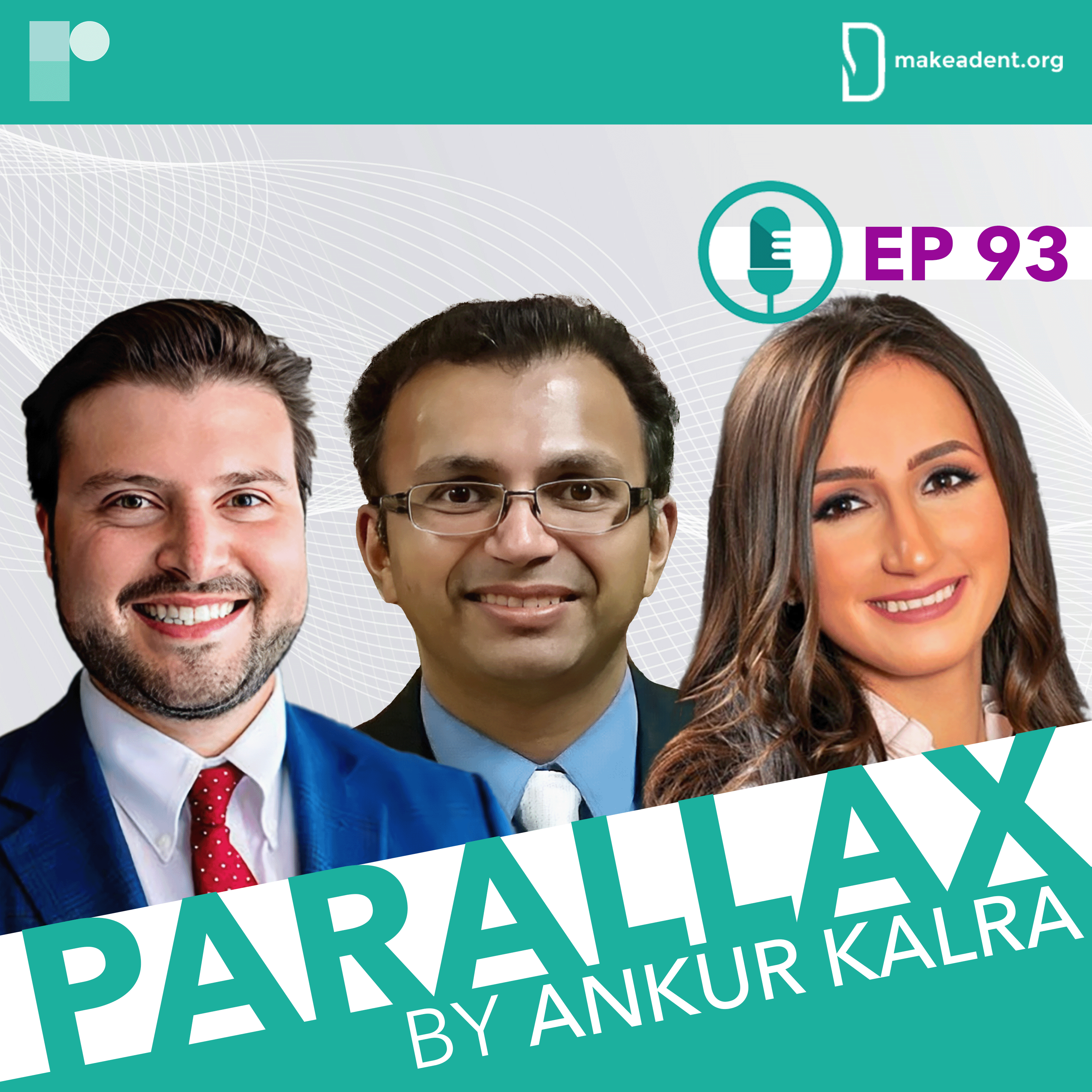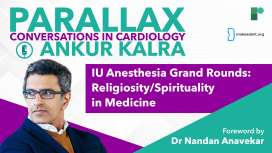
In this week's Parallax, Dr Ankur Kalra is joined by guests, Dr Rama Ellauzi, Dr Nandan Anavekar and Dr Anthony Kashou, also known as The EKG Guy. Together, they delve into cardiovascular education and the Global Cardiology University (GCU).
The genesis of GCU traces back to Dr Kashou's time as an intern at Mayo Clinic. Recognizing the challenges of postgraduate education, Dr Kashou embarked on a journey to enhance early-level training. Drawing inspiration from his own struggle to comprehend electrocardiograms (EKGs), he set out to build a comprehensive database. This eventually led to the birth of GCU.
Dr Ellauzi, Dr Anavekar and Dr Kashou share their passion for education and the devotion that drew them to the GCU. They explore the vision of GCU, which revolves around creating a community space where knowledge is shared, aligning with educational trends, and empowering learners. Through scientific content evaluation and a commitment to providing premium yet affordable materials, GCU embraces community ownership. As the team has grown, teachers and students now find themselves in the same virtual room, fostering a collaborative and supportive environment.
The conversation moves to the platforms and interactions offered by GCU. Dr Ellauzi and Dr Kashou shed light on the diverse formats available. They discuss the process of content vetting, emphasizing the importance of explanations and foundations for learners at all levels. They stress that GCU, serves as a complementary resource, enhancing traditional education methods for learners at different stages of knowledge acquisition.
How can we empower learners in the digital age? How do we build global learning communities and cultures? When should new knowledge become part of a curriculum?
Questions and comments can be sent to “podcast@radcliffe-group.com” and may be answered by Ankur in the next episode.
Guests: @nandananavekar, @EllauziRama, @TheEKGGuy host: @AnkurKalraMD and produced by: @RadcliffeCARDIO.



In this episode, Ankur and Danielle speak about the evidence in favour of a whole-food plant-based diet to improve cardiovascular health, the ACC prevention guidelines, how to talk to patients about positive dietary change, the issue of lack of nutrition training in cardiovascular fellowships and what Danielle’s diet looks like as a busy whole-food plant-based cardiology fellow. On her own podcast ‘Nutrition Rounds’ Danielle has discussions about evidence-based plant-based nutrition with physicians who are leading experts in nutrition and health.
Hosted by @AnkurKalraMD. Produced by @RadcliffeCardiology.

In this brilliant conversation, Ankur, Emmanouil and Michael unravel the potential advantages, challenges and practical realities of using drug-coated balloons in SVD, and the findings of the latest randomised controlled trials studying this area.
Hosted by @AnkurKalraMD. Produced by @RadcliffeCardiology. [Disclaimer: The use of drug-coated balloons in coronay intervention is still off-label; it has not been approved by the FDA.]

Dawn is an associate editor of the journal Circulation: Cardiovascular Interventions and is widely known for her research program on PCI and peripheral arterial disease (PAD). Ankur and J. Dawn discuss multiple trials/studies that were published in 2018, including ORBITA, PIONEER-II and ABSORB. J. Dawn also shares her thoughts on the latest stent technologies.
Hosted by @AnkurKalraMD. Produced by @RadcliffeCardiology.

They discuss the importance of preventative medicine, their experience of reducing hypertension with non-pharmaceutical and pharmaceutical methods, and the significance of the integrated “team approach” when treating comorbid conditions such as hypertension. Athena also shares her thoughts on cardiologists’ responsibility to shape their patients’ lifestyle choices.
Hosted by @AnkurKalraMD. Produced by @RadcliffeCardiology.

Chest pain is one of the most common reasons for an emergency room visit in the US, with almost 6 million ER visits annually, yet there is no consensus on how to compare the results from various hscTn assays. Tune in to hear Santiago outline the advantages and limitations of using hscTn as a standard biomarket to evaluate patients with suspected ACS in the ER.
Hosted by @AnkurKalraMD. Produced by @RadcliffeCardiology.





